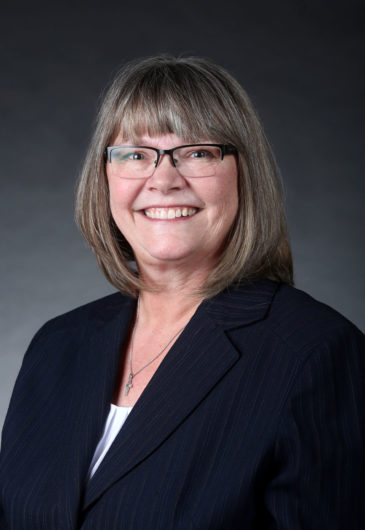People often don’t realize that there are distinct stages of caregiving.
Caregivers ask me early on in the process how we can best prepare to begin caregiving. In many ways, this is the most important step. As with anything in life, you have to ready yourself for that role. And these decisions are not straightforward or simple because you are caregiving for someone else. This typically means that their wishes need to be flushed out, understood, clarified and executed the way your love one wants it to go.
The families that prepare typically have an easier journey because they are ready psychologically and operationally. If you would like your caregiving experience to go really well, preparation always is recommended. Also, if you haven’t spent time in the preparation phase and you already are serving in a caregiving role, it isn’t too late to start the process. All you need to do is cover your bases.
Begin the conversation, and set “Plan A” in motion. Life decisions that occur in caregiving take time to think things through. The overall goal is to learn all that you can about your loved one’s wishes and needs. The more clearly you see things now, the better you will handle the future. The best care is strategically provided. Any health care status change can happen to any of us at any time. The families that have talked things through are prepared with the best information to make decisions when decisions are needed. Take my word for it. You don’t want to wait for a crisis to occur. You want as much clarity as you can because the health care piece is ever-changing. Focus on simplicity.
Make sure that everyone in the family knows the plan. Preparedness makes these situations easier. A family rallied together is in a much better position to enjoy the time they have left together. You don’t want to spend a single minute disagreeing about what should happen. And remember, not everyone has to be in agreement about the plan. It is the person you are caring for (and the family physician in consultation in most cases) who decide on what the overall plan should be. Be sure to consider health, financial and emotional wishes. In most cases, you can anticipate the decision point so you are confirming the decision rather than making a decision under duress from scratch. Also, we are talking about “Plan A.” Your entire family must be ready for “Plan B,” too, and the health care professionals will guide you to that alternative plan, if needed.
Build a medical record that is “on the ready.” It’s easy to think, “Well, the doctor has all that information if we need it,” but the hard truth is that a crisis can happen anywhere and at any time. Your parents’ primary care physician might be out of the office, on vacation or your parents might be on vacation. There are many great digital options these days for keeping this type of crucial documentation on hand. This also could be as simple as starting a binder to act as a repository of all things that you would need. You would house all doctor/dentist contacts, medications, medical records, financial power of attorney documents, medical power of attorney documents, family contacts, etc. My husband used a rolling briefcase when he cared for his mom and dad. And that briefcase saw lots of miles. It always was “on the ready” with everything we could possibly need stored in an organized way and on wheels.
Carefully build your care/support team. Whether they are family, neighbors, friends or professional caregivers, it always is best to align the team members’ duties to their expertise. There also are many agencies that you can hire to help with care in the home. However, this requires extreme shopping for the right agency, the right fit and the right caregiver. Avoid this pitfall by looking into local agencies now, since shopping does take some time if you do it properly. Perhaps you can research them now and have your top two identified in the event that you need to call upon them. Schedule appointments to meet formal caregivers at organizations and feel out the vibe between workers and employers. I cannot emphasize how important it is to hire the right caregiver.
Be ready to check the home for optimal safety. Research items, such as safety and assist rails, bathroom and shower grab bars, toilet seat risers, stairway rails or lifts — and be on top of smaller things, such as reach extenders and bedside caddies. Check for loose carpeting, shin height obstructions, uneven stairs and slippery outdoor surfaces. Be sure that fire alarms and carbon monoxide detectors are functional and have replacement batteries nearby. Night lights and flashlights, stocked medications, incontinence supplies, drinking water, fresh food and nonperishable nutritionals should all be on your checklist.
Prepare to be overwhelmed at times. In most cases, caregiving is a marathon, not a sprint. You need to be prepared to pace yourself. And although you might not feel particularly stressed at this early time in the process, you might experience stress at a later time. Just remember, this is an ongoing process, not a “did it, done, good” task. Feeling stress is natural in these types of extreme emotional times, and allowing yourself to experience stress and frustration without self-deprecation is a must. Every caregiver who I talk with tells me that he or she wished he or she would have taken better care of him or herself through the caregiving process. There always will be more to feel and especially more to be done. Get mental health counseling before you reach a crisis. If there are more family members nearby, see if a group session is feasible.
Work around obstacles, but don’t give up. Kick fear to the curb. There are many things in life we cannot control. Luckily, no matter how it feels, fear can only control us if we let it, and there is no reason to have fear take over. The medical professionals who will be guiding you are experts at all that could or would occur. They will be right by your side helping you make decisions on behalf of your loved one. Take action today to enhance the measures that are within your means and abilities. Be as optimistic as often as you can, for everyone’s sake. Remember what a sacred role you are playing in your loved ones life.
A recent survey found that 83 percent of caregivers viewed it as being a positive experience. Many family caregivers report positive experiences, including a sense of giving back to someone who has cared for them, the satisfaction of knowing that their loved one is receiving excellent care, personal growth and increased meaning and purpose in one’s life.
My rationale on the preparation steps is that you can set yourself up for success. Caregiving is such a sacred and important role that we should prepare and be ready for one of the most important roles we could ever gift a loved one. The caregiving experience isn’t always easy, but it is an honor to serve and a wonder to behold. You will cherish these memories throughout your life time.
Laura Nissen is the dementia specialist for Luther Manor Communities in Dubuque. Her passion is providing hope, encouragement, support and education to families.












